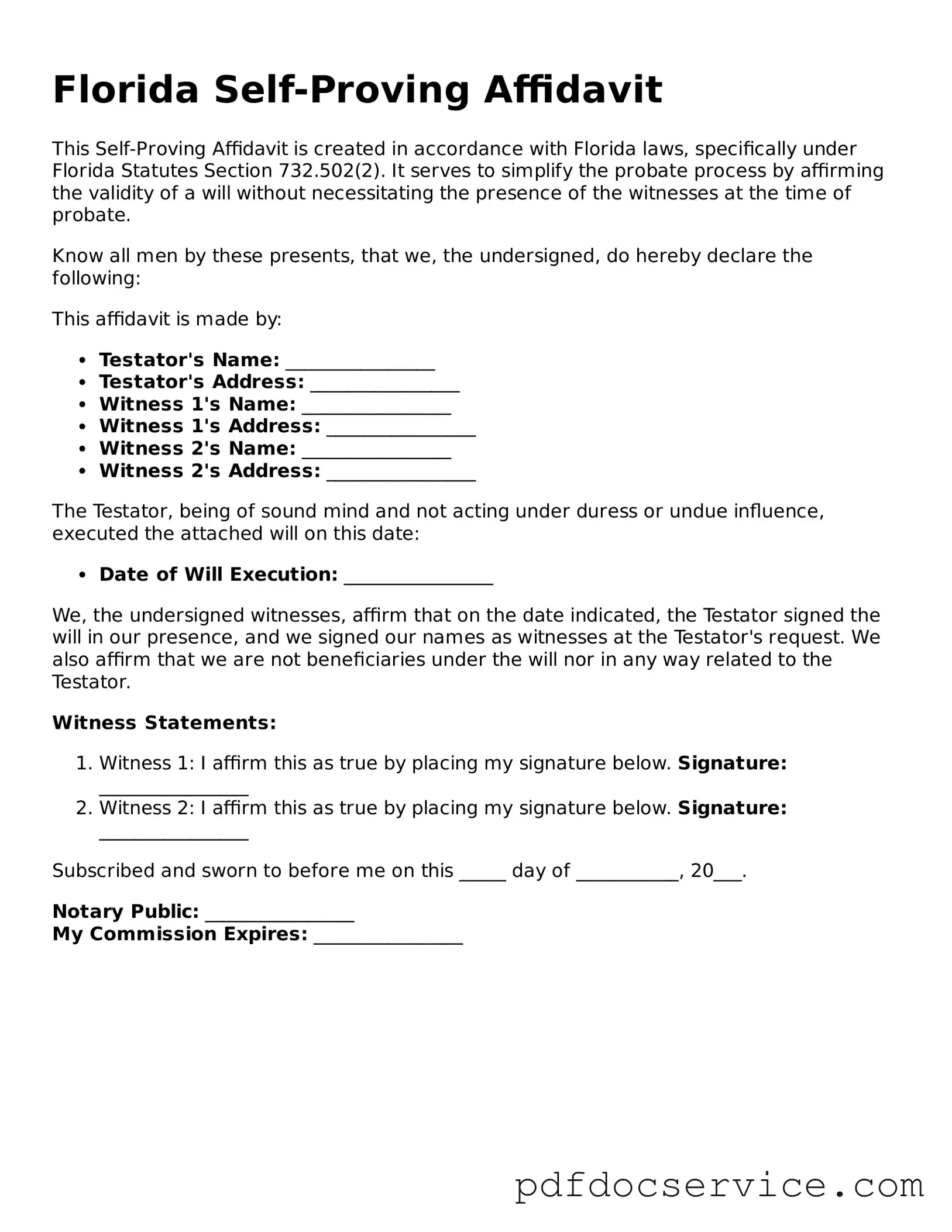Printable Self-Proving Affidavit Template for Florida
The Florida Self-Proving Affidavit is a legal document that allows a testator's will to be validated without the need for witnesses to testify in court. This form simplifies the probate process by confirming that the will was executed properly. By utilizing this affidavit, individuals can ensure their final wishes are honored with greater efficiency.
Open Self-Proving Affidavit Editor

Printable Self-Proving Affidavit Template for Florida
Open Self-Proving Affidavit Editor

Open Self-Proving Affidavit Editor
or
Get Self-Proving Affidavit PDF
Finish the form now and be done
Finish Self-Proving Affidavit online using simple edit, save, and download steps.